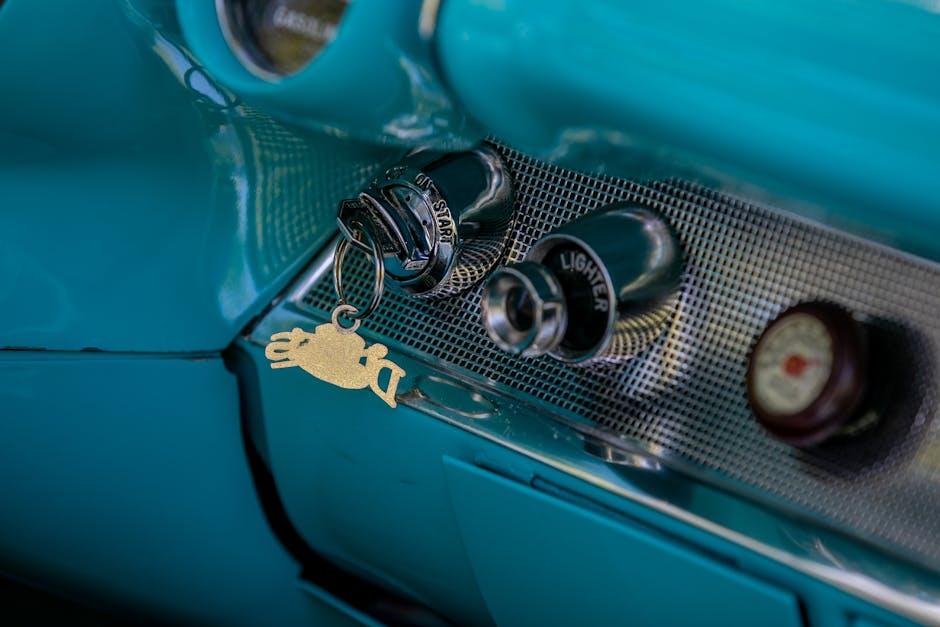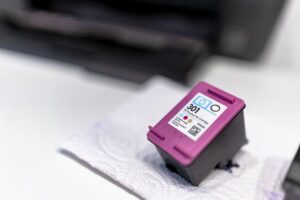In the whirlwind of modern life, a misplaced or damaged car key can bring your day to an unexpected standstill. Whether it’s a traditional metal key, a transponder, or a high-tech smart key fob, losing access to your vehicle can spark a mix of frustration and urgency. But just how long does it take to replace a car key and get you back on the road? This article dives into the timelines, processes, and factors that influence the speed of key replacement-shedding light on what you can realistically expect when faced with this common dilemma.
Table of Contents
- Understanding the Factors That Influence Car Key Replacement Time
- Comparing Traditional and Smart Key Replacement Durations
- Step-by-Step Breakdown of the Car Key Replacement Process
- Tips for Minimizing Waiting Time at Locksmiths and Dealerships
- Choosing Between DIY Solutions and Professional Services for Key Replacement
- Q&A
- Concluding Remarks

Understanding the Factors That Influence Car Key Replacement Time
Several key elements shape the duration required to replace a car key, ranging from the type of key to the technology involved. Traditional mechanical keys usually take the least time since they require only basic cutting. However, modern vehicles often use transponder keys, remote key fobs, or smart keys embedded with advanced electronics that demand specialized programming equipment. Availability of replacement parts also plays a significant role; a key that needs to be ordered from the manufacturer could extend the process considerably.
Additionally, the expertise of the locksmith or dealership technician influences how quickly the replacement can be completed. Some factors contributing to time variations include:
- Make and model of the car – Certain brands require specific tools or codes.
- Security features – High-security keys may need extra verification.
- Location and service type – On-site mobile services might be faster than dealership appointments.
- Programming requirements – Smart keys often demand syncing with the vehicle’s computer.
| Key Type | Estimated Replacement Time | Complexity Level |
|---|---|---|
| Mechanical Key | 15-30 minutes | Low |
| Transponder Key | 30-60 minutes | Medium |
| Remote Key Fob | 60-90 minutes | High |
| Smart Key | 1-3 hours | Very High |

Comparing Traditional and Smart Key Replacement Durations
When it comes to replacing car keys, the time required can vary significantly based on the type of key being duplicated. Traditional keys typically involve a straightforward copying process where a blank key is cut to match the existing one. This usually takes just a few minutes at a locksmith or key cutting station. In many cases, if you have the original key, traditional replacements can be ready within 15 to 30 minutes, making it a quick fix for most drivers.
On the other hand, smart keys-also known as key fobs or transponder keys-require more complex programming. These keys communicate electronically with your vehicle, and simply cutting the outer shell isn’t enough. Programming the key to sync with your car’s security system can extend the process anywhere from 30 minutes to a couple of hours. Key replacement services often use specialized equipment to ensure seamless integration, such as:
- Transponder chip programming
- Remote frequency synchronization
- Vehicle immobilizer reset
| Key Type | Average Replacement Time | Complexity |
|---|---|---|
| Traditional Key | 15-30 Minutes | Low |
| Smart Key (Key Fob) | 30 Minutes – 2 Hours | High |

Step-by-Step Breakdown of the Car Key Replacement Process
When replacing a car key, the process typically unfolds in several clear steps that contribute to the overall time needed. First, the locksmith or dealership will verify your vehicle information to order the correct key type. Then comes the physical key cutting, which for traditional keys can take just a few minutes, but for key fobs and transponder keys involves additional programming. This programming step syncs the new key with your car’s immobilizer system, ensuring seamless functionality. Depending on the make and model, this phase can range from a quick electronic sync to a more intricate setup requiring specialized equipment.
The time invested in each stage can vary, so here’s a quick overview of what usually happens during the replacement:
- Verification: Confirming key compatibility and vehicle details
- Cutting: Creating a physical copy or cutting a new key blank
- Programming: Pairing the key with the vehicle’s security system
- Testing: Ensuring the new key operates all locks and ignition smoothly
| Key Type | Average Time Required |
|---|---|
| Standard Mechanical Key | 10 – 15 minutes |
| Transponder Key | 30 – 60 minutes |
| Key Fob / Smart Key | 1 – 2 hours |

Tips for Minimizing Waiting Time at Locksmiths and Dealerships
To cut down on downtime when replacing your car key, preparation and timing are key. Before you even call a locksmith or head to the dealership, have your vehicle’s make, model, and year information ready, along with your VIN (Vehicle Identification Number) and proof of ownership. Many key replacement providers require this data upfront, and having it on hand can help speed things along significantly. Also, consider scheduling appointments during off-peak hours, such as weekday mornings, when service centers typically experience lower traffic.
Another smart move is to understand the type of key your car uses-whether it’s a basic blade key, transponder key, or a sophisticated smart key. This knowledge lets you choose between a locksmith or dealership, depending on who can provide the fastest or most cost-effective service. Utilizing local locksmiths for standard keys often reduces wait times, while dealerships might be better equipped for high-tech, electronic replacements. Below is a simple comparison to help guide your choice:
| Key Type | Best Service Option | Expected Wait Time |
|---|---|---|
| Basic Blade Key | Local Locksmith | 15-30 minutes |
| Transponder Key | Locksmith or Dealership | 30-90 minutes |
| Smart Key / Key Fob | Dealership | 1-3 hours |
- Call ahead: Confirm services, wait times, and costs before visiting.
- Bring necessary documents: When proofs of ownership and ID are ready, the process moves faster.
- Opt for mobile locksmith services: Some providers come to you, saving travel and waiting.

Choosing Between DIY Solutions and Professional Services for Key Replacement
When deciding how to replace your car key, the choice between DIY solutions and professional services often comes down to complexity and convenience. DIY methods might seem appealing for simpler keys, such as basic metal ones, since they can save money and time if you have the right tools. However, modern vehicles often require keys with sophisticated transponders or integrated remote functions, making the DIY approach significantly more challenging and sometimes ineffective without specialized equipment. It’s worth noting that some key replacement kits include step-by-step instructions, but the success rate varies greatly depending on your vehicle model.
On the other hand, professional locksmiths and dealerships offer expertise that ensures your new key will be programmed and cut correctly the first time. This service typically takes between 30 minutes to an hour, but the peace of mind and warranty options can outweigh the higher cost. Consider the following factors when making your decision:
- Key type and technology: Mechanical vs. transponder or smart keys
- Cost: Initial expense versus long-term reliability
- Urgency: Immediate need or flexibility for scheduling
- Your skill level: Experience with lock mechanisms and key cutting
| Aspect | DIY Solutions | Professional Services |
|---|---|---|
| Time Required | Varies (1 hour+) | 30-60 minutes |
| Cost | Low to Moderate | Moderate to High |
| Success Rate | Depends on skill | High |
| Convenience | Requires effort and tools | Stress-free |
Q&A
Q: How long does it usually take to replace a car key?
A: Replacing a car key can take anywhere from a few minutes to several hours. The exact time depends on the type of key, the car model, and the method used for replacement.
Q: What factors influence the time needed to replace a car key?
A: Several factors come into play: whether the key is a traditional mechanical key or a modern key fob with electronic components, if the vehicle requires programming, and the availability of the right equipment and key blanks.
Q: Can replacing a simple metal key be done quickly?
A: Yes! A simple cut key without electronics can often be duplicated within 5 to 15 minutes at a hardware store or locksmith.
Q: What about smart keys or key fobs with transponders?
A: Those take longer because they require programming to sync with your car’s security system. This process can take from 30 minutes to over an hour at a dealership or qualified locksmith.
Q: Is it faster to get a replacement at a dealership or through a locksmith?
A: Locksmiths typically offer quicker service and lower prices, but dealerships have direct access to manufacturer programming tools, which can be beneficial for newer or more complex car models.
Q: Does having proof of ownership speed up the process?
A: Absolutely. Providing your registration, ID, and proof of ownership helps professionals verify you’re the rightful owner and speeds up the replacement procedure.
Q: What should I do if I’ve lost all my car keys?
A: If you have no keys left, expect the replacement to take longer and possibly be more expensive, as the locksmith or dealer may need to disarm the ignition system and create entirely new keys.
Q: Can I prepare in advance to reduce replacement time?
A: Keeping a spare key and knowing your car’s key code can save time. Also, researching locksmiths who specialize in your vehicle’s brand can make the replacement process smoother.
Q: So, what’s the bottom line on timing?
A: Simple key replacements can take as little as 10 minutes, while electronic key and fob replacements with programming might require a few hours. Always plan ahead to avoid getting stranded!
Concluding Remarks
In the end, the time it takes to replace a car key is as variable as the keys themselves-from a quick trip to a locksmith to a more involved process requiring programming and dealer assistance. Understanding the factors at play can help you navigate this unexpected hiccup with a bit more ease and patience. So, whether you’re facing a simple cut key or a high-tech smart key replacement, knowing what to expect can turn an inconvenient setback into a manageable detour on the road ahead.





